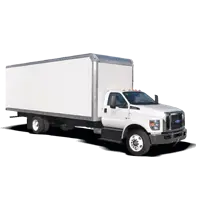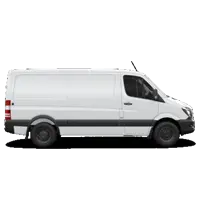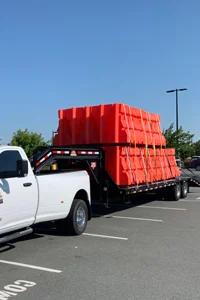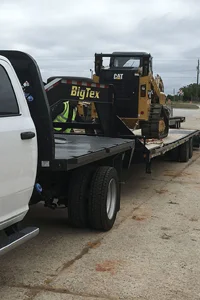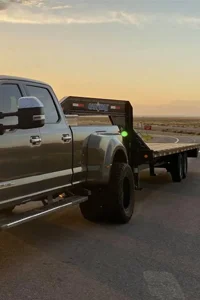OILFIELD TRANSPORT
Delivering oversized equipment, supplies & pipe, together with extensive support services
Oilfield Transport Services
The Crucial Role of Logistics in the Energy Industry
Receive A Shipping QuoteSpecialized Trucking for the Energy Sector
In the demanding environment of the oil and gas sector, specialized trucking serves as the logistical backbone for remote operations across the Permian Basin and the Gulf Coast. Hotshot trucking is particularly vital for "rig-down" situations where every hour of downtime costs thousands of dollars. Operators in Houston, TX and Midland, TX frequently utilize 1-ton pickup trucks equipped with 40-foot gooseneck trailers to rush drill bits or specialized valves to sites in Carlsbad, NM or Oklahoma City, OK. For larger, more cumbersome loads like casing pipes or pump jacks, flatbed trucking is the industry standard. These rigs, often seen traversing the highways between San Antonio, TX and Shreveport, LA, require heavy-duty securing equipment including grade 70 transport chains, heavy-duty binders, and specialized pipe stakes to ensure cargo remains stable during off-road transit to rugged lease sites.
Beyond heavy iron, the industry relies heavily on sprinter van trucking for support and the delivery of sensitive electronic components or laboratory samples. These vans are essential for navigating the dense refinery corridors of Baton Rouge, LA and Lake Charles, LA, where larger rigs struggle to maneuver. To operate safely in these regions, equipment must often meet specific safety certifications; for instance, trucks entering sites near Odessa, TX or Lafayette, LA may require spark arrestors, fire extinguishers, and drivers equipped with full Personal Protective Equipment (PPE) and H2S (hydrogen sulfide) safety training. Whether it is a sprinter van delivering a critical sensor to Tulsa, OK or a flatbed hauling a massive manifold to Corpus Christi, TX, the synergy of these diverse equipment types ensures the energy corridor remains productive.
Logistics Infrastructure & Safety
Sprinter Van Services
Beyond heavy iron, the industry relies heavily on sprinter van trucking for "hot-oiling" support and the delivery of sensitive electronic components or laboratory samples. These vans are essential for navigating the dense refinery corridors of Baton Rouge, LA and Lake Charles, LA, where larger rigs struggle to maneuver.
Safety & Compliance
To operate safely, equipment must meet specific certifications; for instance, trucks entering sites near Odessa, TX or Lafayette, LA may require spark arrestors and drivers equipped with full PPE and H2S safety training. Whether it is a sprinter van in Tulsa, OK or a flatbed in Corpus Christi, TX, we ensure compliance.
Hot Shot Trailer Specifications
Truck Classes
- Class 3: GVWR up to 14,000 lbs (Ford F-350)
- Class 4: GVWR 14,001 - 16,000 lbs (Ram 4500)
- Class 5: GVWR 16,000+ lbs (Ford F-550)
Trailer Types
- Gooseneck: High stability for heavy loads.
- Lowboy: Ideal for oversize tall loads.
- Dovetail: Best for wheeled equipment.



